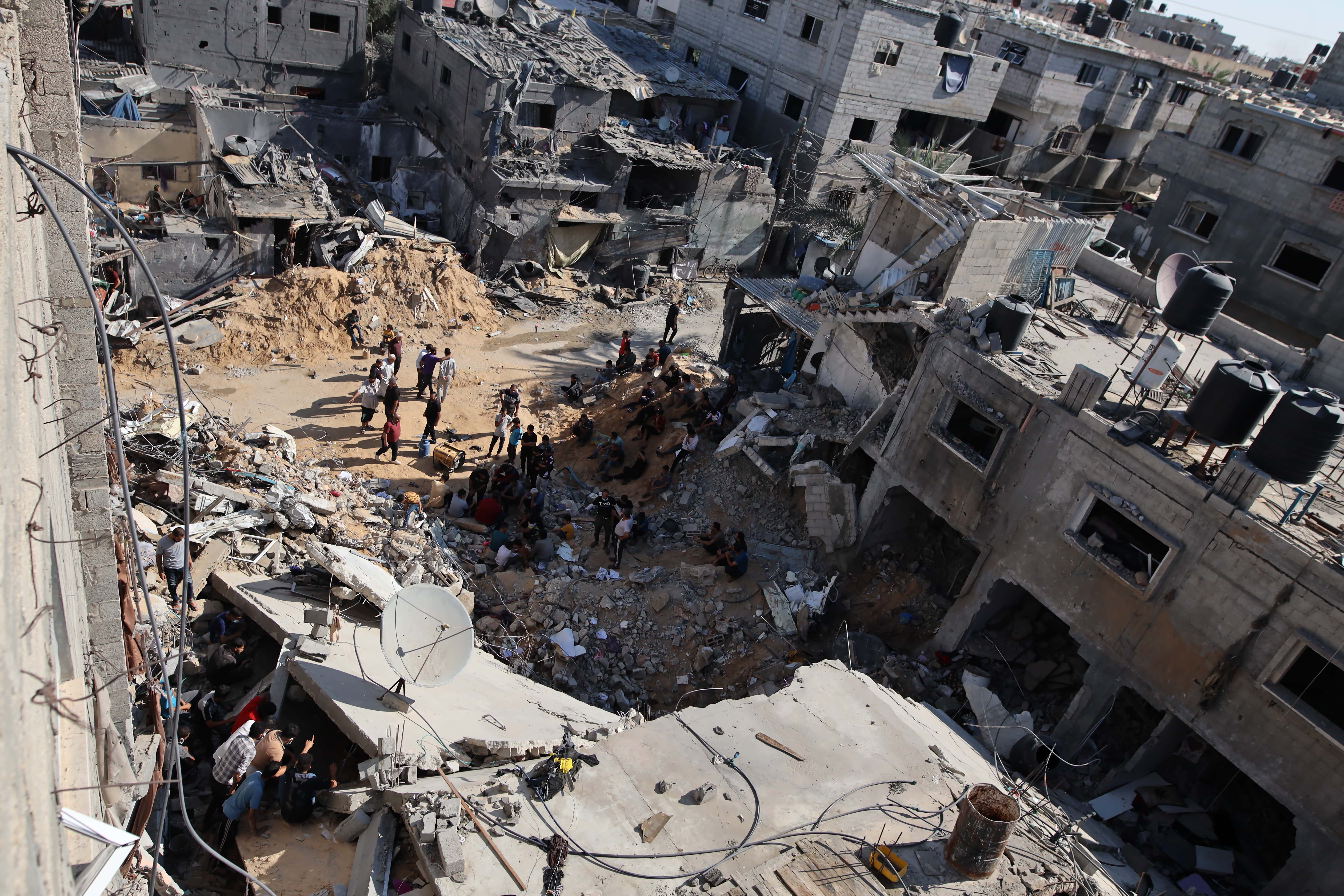
Project HOPE Calls for Immediate Ceasefire in Israel-Hamas Conflict
Project HOPE condemns attacks on civilians in Israel and Gaza and is calling for an immediate ceasefire.
Project HOPE condemns attacks on civilians in Israel and Gaza and is calling for an immediate ceasefire. Authorities must prioritize humanitarian access to Gaza, deliver life-saving aid that has been waiting for weeks to enter Rafah Crossing, and secure the release of innocent civilians. The U.S. government must wield its full influence to protect innocent lives and champion international humanitarian law.
The civilians of Gaza have endured nearly a month of continuous airstrikes that have claimed the lives of over 9,000 people – the majority of whom have been women and children – while hospitals, schools, and refugee camps continue to be targeted. Reports indicate that Gaza’s only cancer hospital has suspended operations due to fuel shortage, and the few hospitals that have remained open are only treating emergency cases and functioning with little to no supplies or fuel, staffed by health workers who have had no opportunity to sleep or mourn. 14 out of 36 hospitals in Gaza are now unable to function due to scarce resources, fuel shortages, and lack of medical supplies. There are reports of surgeries being performed without anesthesia, health workers working around the clock for almost a month straight, and patients lining the hallways.
Chessa Latifi, Project HOPE’s Deputy Director of Emergency Preparedness & Response, said:
“What’s happening in Gaza is a humanitarian catastrophe beyond comprehension. 420 children are being killed in Gaza every day – that’s over 3,600 children who will never have the chance to grow up, and thousands of families that are enduring life’s greatest loss with no end in sight to the violence. Already more than 60 aid workers and 100 health workers have been killed. Entire neighborhoods have been reduced to rubble and desperate family members are forced to dig with their bare hands for any trace of the living. There is nowhere to bury the dead. There are thousands under the rubble. For those who are recovered, they are often carried in the arms of strangers to hospitals that lack anesthesia, antibiotics, and even electricity. A ceasefire is long overdue. If violence continues at this rate, there will be no Gaza left to save. You have to ask yourself – how can we watch the most horrific of tragedies unfolding before our eyes and continue to allow it another day?”
Dr. Monther Abo Sharek, an emergency doctor at El-Najar Hospital in Rafah, told Project HOPE:
“The number of people in Rafah is more than 500,000. The total number of beds in the hospital is 80. Most of these cases are critical and will die soon because we don’t have enough medical supplements or medical staff to deal with them. The scene is very hard to imagine. 70% are women and children. We’ve had so many pregnant women here as victims. Most of them were killed. Some were injured. In one case, the mother was eight months pregnant. She died, but our surgeon did an urgent surgery and kept the fetus alive; he is now in another hospital in neonatal care, and we hope he will survive. The number of people killed will increase every hour that we delay or can’t help these people. Most of us (health care workers) now need psychological therapy because we’re just carrying more than we can carry. We need your help.”
Project HOPE has prepositioned multiple shipments for entry into Gaza through the Rafah Crossing, including six World Health Organization Interagency Emergency Health Kits (IEHKs), seven Trauma and Emergency Surgery Kits (TESKs), and 750 hygiene kits with bottled water and water purification tablets. Project HOPE’s partners are on standby to deploy Mobile Medical Units (MMUs) into Gaza and/or to support surge staffing for injured Gazans in Egypt, as needed.
Project HOPE has team members in the region available for interviews. View photos and video footage from Project HOPE’s photographer in Gaza here. Support Project HOPE’s response by visiting www.projecthope.org/conflict.
###
About Project HOPE
Founded in 1958, Project HOPE is a leading global health and humanitarian organization operating in more than 25 countries around the world. We work side-by-side with local health systems to save lives and improve health. Our mission is at the epicenter of today’s greatest health challenges, including infectious and chronic diseases, disasters and health crises, maternal, neonatal and child health and the policies that impact how health care is delivered. For more information on Project HOPE and its work around the world, visit www.ProjectHOPE.org and follow us on socials @ProjectHOPEorg.